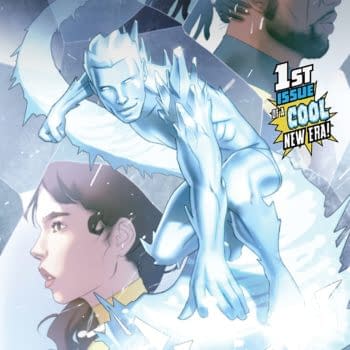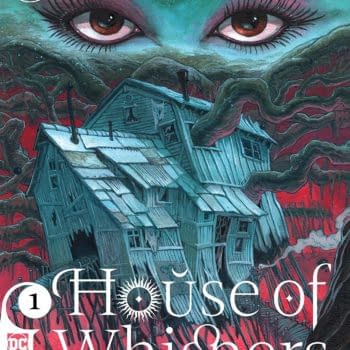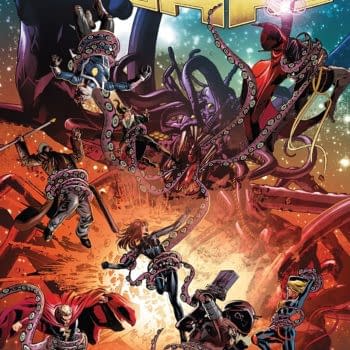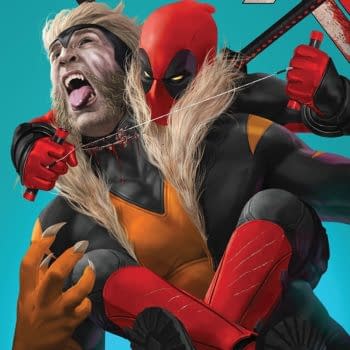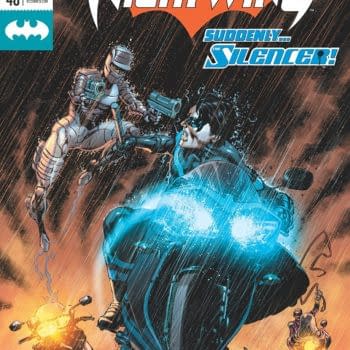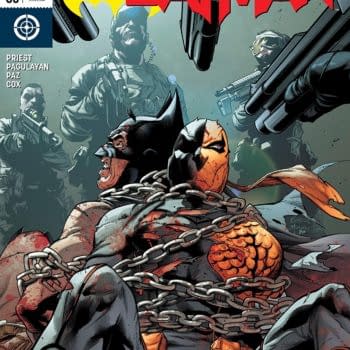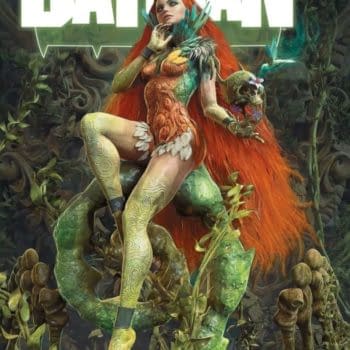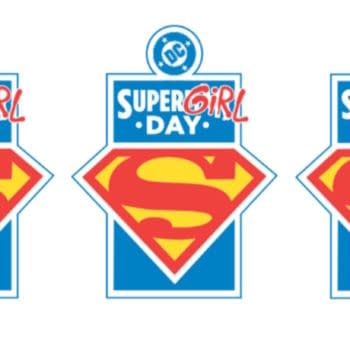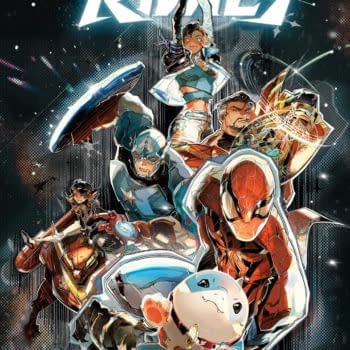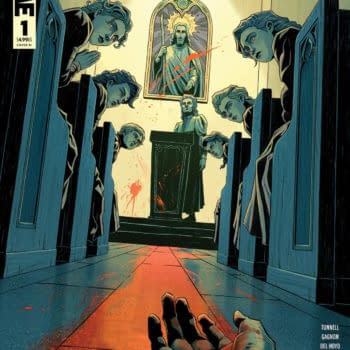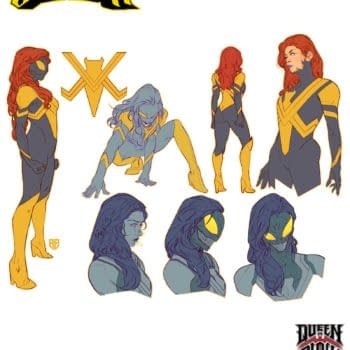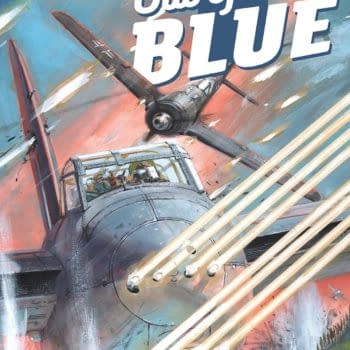Posted in: Comics, Marvel Comics | Tagged: Comics, HRL
Marvel Two-in-One #1 Review: Good Storytelling Overshadowed by the Corporate Mandate
Marvel Two-in-One begins with the Human Torch and the Thing dealing with the apparent demise of Reed, Sue, Franklin, and Valeria Richards and the end of the Fantastic Four. Ben Grimm is doing what he can to honor the legacy of the Fantastic Four, and Johnny Storm is taking ever-more extreme risks.
A visit from one of the FF's oldest allies, the Amazing Spider-Man, reunites the two. However, another visit complicates things, as Victor von Doom, former Doctor Doom and current Infamous Iron Man, brings an inheritance left behind for the Thing from his oldest friend: Mister Fantastic.

Those who read my review of Captain America #695 will probably experience some déjà vu with this review, as the two bear similar problems.
Namely, context is what complicates and ultimately corrupts the narrative of both comic issues. However, Marvel Two-in-One has more problems due to its context. Whereas Captain America #695 was soured somewhat by its naked attempts to make up for an admittedly ambitious and daring but ultimately wrongheaded and questionably written Captain America-centric story, Marvel Two-in-One #1 is soured by its attempts to nakedly quell audience frustrations about a corporate mandate to not provide free publicity — or something like that — for an awful, awful movie made solely to hold onto film rights.
In short, it was capitalism. Capitalism hurt Marvel Two-in-One #1. That is ironic, since nothing about Marvel would exist as it does without capitalism.
You see, this is actually a very well-written and weighty comic about two of Marvel's greatest heroes dealing with grief and loss. The Thing has had his short temper mellowed by attempts to honor the legacy of his family. The Human Torch has had his verbosity and joy dampened by his feelings of loneliness.
Now you may be thinking to yourself, "Wait, I read Bendis's Guardians of the Galaxy with the Thing and Duggan/Zub's Uncanny Avengers, and neither character seemed like this in their respective comic." You'd be right. I've read both, too, and this character turn does seem very much out of nowhere. Maybe the implication is that without each team to run with, these two feel lost — or perhaps they were hiding this from their new teammates. That's not acknowledged here.
But even that minor oversight doesn't make this comic ring as hollow as Marvel's contrived insistence on not publishing the Fantastic Four. They could easily bring them back. We know they're not dead, and we know why they've been phased out. All of this surprisingly genuine storytelling about grieving superheroes is made a little shallow when you realize it's essentially corporate apologism.
And that's a shame, because Chip Zdarsky did some damn fine work here. This would be very affecting without the shadow looming over it. And yes, it promises a return of the Fantastic Four, but this could have been the return of the FF from the outset. It didn't just have to be Matchstick and The World's Second Most Well-Known Orange Monster, though I love both of these FF members. Hell, the Fantastic Four never needed to go away to begin with. No outside forces did that. You did, Marvel and Disney, when you decided to attempt to damage a movie that was already a disaster.

Jim Cheung does some really good work here, too. He's really good at setting up a panel. His Benjamin J. Grimm looks great. John Dell and Walden Wong provide some rather stunning ink work. Frank Martin keeps things strong and colorful. This is a really good-looking comic book.
To close things out, yes, most of what Marvel does is fueled by corporate mandate. The trick is finding the strong writing and art in that miasma. However, this is good storytelling completely overshadowed by the corporate mandate, and it doesn't help that it came out the same week that Marvel slaughtered a decent portion of their decently diverse book catalogue. Yes, Marvel Two-in-One #1 is a good book, but it's been tainted by its purpose. I do recommend it on its merits as a comic, but it's hindered by its status as a product.


